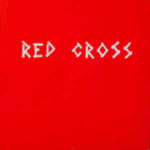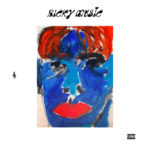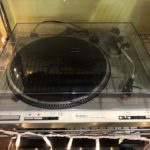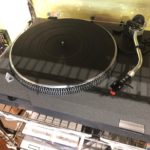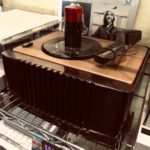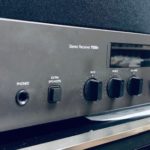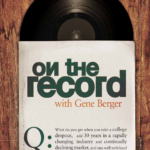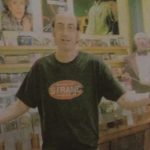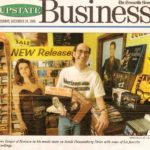The big news at New Release central is some fresh stuff from our fave banjo couple Bela Fleck & Abigail Washburn, but we’ve also got stuff by Destroyer, Flat Duo Jets, Margo Price and a whole slew of others! Read on…
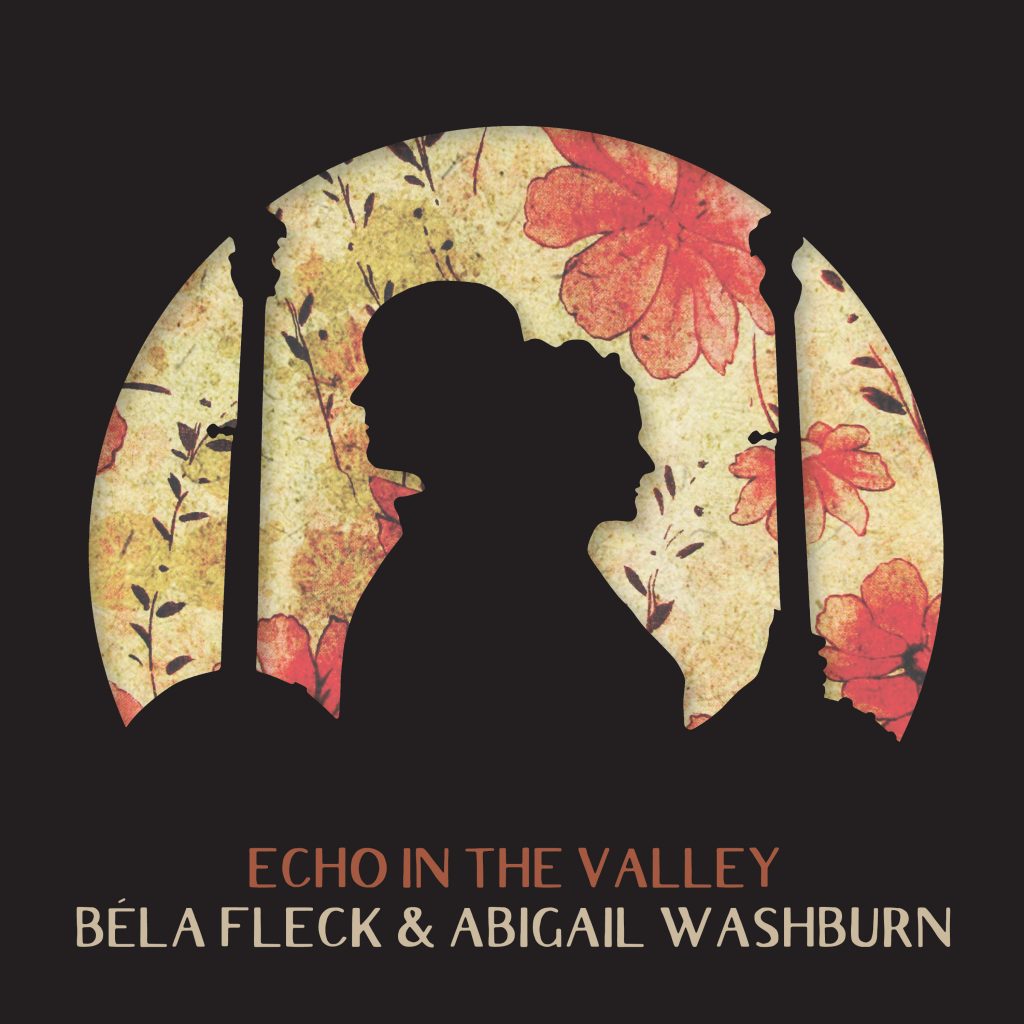
BELA FLECK & ABIGAIL WASHBURN, Echo In The Valley (CD/LP)
Though banjoists Béla Fleck and Abigail Washburn have been playing together since well before they married, it took until 2014 for the pair to record a full duet album together. That self-titled effort was a wild outing full of originals, updated takes on traditional folk songs, and a few compelling covers by composer Béla Bartók. Interestingly, they narrowed the parameters of their music-making for Echo in the Valley. For starters, the entire set comprises originals. And there are no guest musicians — only two banjos, Washburn’s voice, and percussion sounds (feet tapping in the floor or a board). Everything that made the record had to be able to be reproduced in a live setting. It features the pair performing on seven different banjos, ranging from a ukulele banjo to an upright bass banjo, with an emphasis on three-finger and clawhammer styles. The few adaptations of traditional tunes include a stunning version of Clarence Ashley’s “My Home’s Across the Blue Ridge Mountains,” alchemically transformed into a ginhouse blues with Washburn’s voice soaring above the pair’s stinging runs and fills, with Fleck even utilizing a slide to add gutbucket rawness to the tune. This date also marks the first time the duo have recorded their almost standard live medley “Sally in the Garden/Big Country/Molly Put the Kettle On.” Lasting nearly eight minutes, it reveals their symbiotic dialogue to be as emotionally resonant as it is musically deft. While the instrumentals are kinetic, creative, and deeply satisfying, it’s the vocal tunes that really make the set stand apart. “Take Me to Harlan,” with its shuffling percussion sounds, walks a line between swing, blues, and bluegrass, with Washburn enunciating each syllable with feeling, nuance, and clever acumen. “Don’t Let It Bring You Down” is a blues delivered as a fuzzed-out, distorted indie rocker with gorgeous vocal syncopation; its subject deals with collective — as in societal — exhaustion experienced by media overload. “If I Could Talk to a Younger Me,” inspired by their young son, commences almost like a lullaby, but becomes a Flatt & Scruggs-esque paean to wisdom. Washburn’s singing allows the words to fall from her mouth like water and Fleck deliberately understates his fingerpicking style as she covers the rhythm and bass notes. Their reading of Sarah Gunning’s “Come All You Coal Miners” finds Washburn channeling Hazel Dickens, while the clawhammer modal breakdown underscores the urgency and tragedy in the lyric. Fleck’s playing just oozes mountain soul. The closer, “Bloomin’ Rose,” is a metaphorical narrative about the environment delivered though vehicles of British and Appalachian folk and hymnody. Stunningly beautiful and haunting, it is an arresting close to a compelling, imaginative album that is sometimes daunting for all the simplicity of its approach. Echo in the Valley is organic music-making at its very best.
DESTROYER, ken (CD/LP)
In almost two decades fronting Destroyer, New Pornographers founder Dan Bejar has constantly switched styles, taking in everything from baroque pop to rampaging, Wizzard-style glam rock. His 12th album contains semi-acoustic strumming, hurtling shoegaze and shimmering Italian house, but mostly settles on a blissful, electronic pop sound that’s often reminiscent of a hazier, more beatific Temptation-era New Order. Old analogue drum machines tick, synthesisers soar and Peter Hook-type basslines twang, most effectively on the sublime, memorably titled Tinseltown Swimming in Blood. As ever, Bejar’s lyrics – delivered as conversational narratives – seem to hail from a parallel universe. Urinating brides nestle up against “dear young revolutionary capitalists”, with Saw You at the Hospital’s imagery particularly vivid (“Your eyes were clearly insane, your robes undone”). Named after the original title of Suede’s The Wild Ones, Ken isn’t quite as cohesive as 2011’s outstanding breakthrough, Kaputt, but makes another fine addition to the canon.
MARGO PRICE, All American Made (CD/LP)
All American Made isn’t a celebratory title. As on her debut, Midwest Farmer’s Daughter, Margo Price’s America is a country in which life is hard; specifically, it’s a country in which life is hard for women. She tackles the dry subjects of news reporting with humour and vim: the idea of a song about sex discrimination in wages doesn’t sound like fun on paper, until you notice Price’s sharp eye for a killer line – “We’re all the same in the eyes of God, and the eyes of rich white men” – and get to relish the lightness of touch in the Tex-Mex musical colouring. The equally scabrous Cocaine Cowboys rides along on a 1970s soft-rock groove, with Price excoriating the men “coming from New York, LA and Seattle, they don’t have to rope no cattle”. Willie Nelson duets on Learning to Lose, and the highest praise for Price is that he sounds very much like the second most talented person on another beguiling album.
BRAND NEW, Science Fiction (CD/LP)
After eight years of public speculation, message board sleuthing and amateur detective work, Brand New’s fifth studio album is finally a real, tangible thing. Science Fiction surprised us, but it’s not a surprise album, at least not in the 2017 music industry definition of the term. There were no pop-up shops or thirst-heavy viral stunts. Zane Lowe didn’t premiere a song on his Apple Music show and hell, the album isn’t even up on streaming services. It’s been almost four years since Dec. 2013, but there’s a good chance frontman Jesse Lacey still doesn’t really know what “pull a Beyoncé” means. No, Brand New’s straight-to-diehards release plan feels more like a cut from a bygone era, when punk and indie rock fans were connected by home address listings and mail order catalogs, when bands sent out glossy 8X10’s en masse and could write their own mythologies through hokey, half-true one-sheet bios. Still, it feels sincere. The Long Island-bred emo band has never appeared particularly made for this century, from its tendency to scrap songs over Internet leaks to its famously SEO-unfriendly name. Even someone who tried to search for a secondhand “Brand New t-shirt” on eBay in 2001 feels this pain. Lacey once nixed interviews with all major outlets in promoting a new album for fear of clickbait headlines, and this was back in 2006. By sending out initial copies of Science Fiction to a few sight-unseen, paying fans before offering so much as a press release to media types, Brand New isn’t showing off; it’s being the same socially-awkward, not-made-for-these-times cult band it’s always been. Science Fiction was mailed out to those early fans as a singular, hour-long track and that presentation proves apt, even after it was released as a proper 12-song album hours later. It’s a linear monolith, songs intertwined through mystical spoken word segments and found sounds; think the intro to Daisy, but revisited over the course of a record. The first track, “Lit Me Up,” opens like this, with a dated, documentary-style spoken exchange of someone’s dream analysis. Static takes over, then droopy, distorted electric guitar, which a woozy Lacey sings over like he’s navigating some sort of sonic catacombs: “It lit me up like a torch on a pitch black night.” As the dirge plods along, you can sense longtime listeners clenching their jaws, bracing for impact from the massive, out-of-nowhere chorus — or at least the loud part — but unlike “Sowing Season (Yeah),” “Bed,” “Tommy Gun,” and so much of Brand New’s catalog before it, the moment never comes. The pay-off arrives with the song’s wispy conclusion, and later, when the bass and percussion finally kick in on track two, “Can’t Get Out.” On this mid-tempo rumbler, Lacey wails his insecurities in the starkest of terms. “I’m just a manic depressive,” is particularly gripping, delivered in one of its throbbing, insistent choruses. For nearly two decades, the frontman’s lyrics confided via adolescent angst, winking Morrissey pathos, and Biblical imagery; here, the curtain of pretense is pulled away, but Brand New’s aura pulls ever stronger.
E LERCHE, Pleasure (CD/LP)
Launched upon the slinkily-martial New Ordered synthscape of album opener “Soft Feelings,” Pleasure leaps headfirst into a hip-rolling embrace of entanglement-free carnality empowered by this modern world. Though he’d previously feinted dance-music interludes, near all of the current collection—the fractured Bacharach’n’roll freakout of “Violent Game” a notable exception—feels enmeshed within this admittedly ‘80s-obsessed moment. However stark the departure from his comfort zones, Lerche seems enlivened by the change. That effortless facility with instantly-memorable melodies enables choruses to suddenly erupt full-flourish or drift along as a quoted jingle. The effect is thrilling and supremely confident, with almost casual intimacy. Moreover, the peculiar appeal of vocals crooned along a chosen key’s fringes, swaggering through the fragility of a limited range with manful bluster, ride the beats with just enough hesitation to sugar the more corrosive lyrical regrets or render over-flirtatious moments charming. While never shying away from the swoonable essence of a cover boy troubadour’s love balladry, Lerche had before maintained a certain wry distance now wholly abandoned. Even when setting up so clear a pisstake as the “Private Eyes”/”Every Breath You Take” pop-stalker anthem parody “I’m Always Watching You” (“voyeurism” and “masochism” rhyme on the bridge), he’s still swinging that Norwegian wood. Once again, attempting to divine artist’s thoughts from his recordings should be considered a fool’s gambit – particularly when the back catalog has been filled with false flags of unrepresentative whimsy. For all we really know, Pleasure was conceived as purely conceptual riposte to the naked soul-baring of Please that elaborates the logical next phase of our newly-single pop star. All the same, there’s an personalized urgency to the joys and emptiness of sport-fucking. Though he’s taken such pains to defy anything resembling a trademark sound, Pleasure’s aggressive tonal shift must nevertheless seem jarring to longtime fans. Given the album’s adrenalized kick, it also marks his best chance in a long while to make new ones.
WILLIE NELSON, Willie & The Boys: Willie’s Stash Vol. 2 (CD/LP)
Following in the musical footsteps of 2014’s ‘December Day’, ‘Willie Nelson and the Boys’ is another family collaboration, this time showcasing Willie and sons, Lukas Nelson and Micah Nelson, performing a selection of American country music standards and classics, including seven penned by Hank Williams Sr. Consisting mainly of studio recordings laid down during the 2011 sessions for Heroes, ‘Willie Nelson and the Boys (Willie’s Stash, Vol. 2)’ is produced by Willie’s longtime friend and collaborator Buddy Cannon and recorded at Pedernales Recordings Studio in Austin, Texas.
THE TURNPIKE TROUBADOURS, A Long Way From Your Heart (CD/LP)
The old cliche is that country music is “three chords and the truth,” often set to stories. Very few songwriters can wring the words of truth out of a place or a moment and put it to music. Fewer still can create compelling narratives out of that truth, and give you short story snippets of a time and place you might not come from, but empathize with all the same because of how well that narrative is written. The king of those writers is John Prine. Others are Jason Isbell, Margo Price, BJ Barham, John Baumann. And then there’s Evan Felker. The frontman, head songwriter and co-founding member of Oklahoma’s Turnpike Troubadours has built a career out of crafting stories rich with detail, empathy and meaning. And on the Troubadours’ latest album, “A Long Way From Your Heart,” the stories are as rich as they’ve ever been. There’s “The Housefire,” which turns the event of its title into a meditation on how to cope when your life’s work goes up in smoke. (Astute fans will also notice that Lorrie, of “Good Lord Lorrie,” “The Mercury” and other songs, also makes an appearance, an the narrator of this story also appears in “The Birdhunters.”) There’s “Pay No Rent,” an ode to Felker’s aunt who recently passed away, a song full of lilting steel guitars at the hands of new band member Hank Early. And then there’s “The Winding Stair Mountain Blues,” as heartbreaking a portrait of grief as Felker has ever penned. Lest you think the subject matter is all dark, it’s not all heartbreak. And the musicianship on display on this, technically the Troubadours’ fifth album (counting the out-of-print “Bossier City”) is the most diverse soundscape they’ve put to record. Early’s steel guitar is a perfect addition to the band. Kyle Nix’s fiddle still burns through songs. RC Edwards’ bass lines become a bit more prominent. And parts of this album (”Something to Hold On To” and “Sunday Morning Paper”) flirt with 70s Southern rock. While not as immediately accessible as some of the songs on “Diamonds and Gasoline” or their self-titled album from 2015, the characters and the stories here stick with you. What happened to Lorrie and the narrator’s house? What will become of the lovers in “A Tornado Warning”? Will the narrator’s friend heed his warning in “Unrung”? Will the law catch up to the man in “Pipe Bomb Dream”? There’s just enough details on the surface for listeners to take in a narrative and let it linger in their mind. “A Long Way From Your Heart” showcases the Troubadours in their best form.
TYMINSKI, Southern Gothic (CD/LP)
Up to this point in his career, Dan Tyminski was best known for the rawboned, mountain soulfulness of his vocals in the trad bluegrass unit Lonesome River Band, the pinnacle of acoustic refinement that is Alison Krauss and Union Station, and the O Brother, Where Art Thou soundtrack, a stylized, sweeping survey of Depression-era roots music. Though he was initially skeptical about lending his voice to an Avicii track, he came away from the collaboration with a new, more flexible outlook — one that led him first into writing pop-country tunes to pitch to Nashville hit-makers, then into the exploration of post-genre music-making that became his new album, Southern Gothic. Working with writer-producer Jesse Frasure, Tyminski went about softening the boundary lines between vastly different genres and approaches by placing an emphasis on mood and tone (an emphasis that extends to every aspect of the packaging and presentation, from shadowy, sepia-tone cover art that depicts cigar smoke curling from his mouth to plans to complete evocative, southern gothic-style videos in this vein for each of the album’s tracks). He and Frasure sometimes worked from feel, building songs like “Perfect Poison” over beds of rhythms and samples. During the verses, Tyminski summons steeled desperation over the subterranean rumble of 808 bass, skittery, programmed percussion and a bluesy dobro figure. In the blustery, anthemic tune “Hollow Hallelujah,” whose impact is amplified by the pop-style stacking of harmonies, he testifies to suppressing spiritual and emotional honesty, but stops short of full-blown repentance. In “Devil is Downtown,” a haunted, ethereal number, he warns of the anonymous, fetish-fulfilling seduction that can be found in the big city. “Haunted Heart” opens with a loop that’s all ticklish syncopation and rumbling bass, followed by what sounds like a baritone guitar mirroring Tyminski’s wordless moans. He laces together ominous, rustic imagery, doubling his lead vocal with an octave plunge that stokes the dread just before the chorus. “Breathing Fire,” a track that lashes a midtempo banjo roll to a thumping, four-on-the-floor beat, is an example of how he calls on his down-home sensibilities in the crafting of the red-blooded, minor-key melody, but radically alters his phrasing, letting the syncopation breathe rather than hurtling ahead in double-time like he might in a bluegrass setting. Many of the album’s 13 tracks amount to broody, imagery-driven portraiture of hidden desire, religious guilt and unsteady conscience, zooming in on anxiety lurking beneath a photogenic, small-town surface. For Tyminski, who’s going just by his last name in this venture, it’s more than a viable reinvention — it’s a downright compelling one.
THE JIMMIE VAUGHAN TRIO w/ MIKE FLANIGIN, Live At C-Boy’s (CD/LP)
When Jimmie Vaughan isn’t out fronting his big “Tilt-A-Whirl” band, there’s nothing he likes more than grooving in this fine trio at C-Boy’s Heart and Soul in his hometown of Austin, Texas. These very cool recordings – oozing with the late-night club atmosphere of Steve Wertheimer’s gem on South Congress Avenue – perfectly capture Mike Flanigin’s mastery of the mighty Hammond B3 and Frosty Smith’s attentive drumming which form the bedrock for Jimmie to lay down some of that trademark peckin’ guitar. Jimmie Vaughan’s style as a player, songwriter and bandleader can be thought of as an amalgamation of so many influences. Known for his deceptively simple yet complex attack, his clean, uncluttered style capitalizes on conveying the emotion and message within the music, He utilizes raw emotion, simplicity, and an elegance that is powerful and accessible, yet communicates exactly what he feels inside.
KIM WILSON, Blues & Boogie, Vol. 1 (CD)
Kim Wilson is not only a frontman but an avid blues scholar who has been dipping into his encyclopedic knowledge of the genre to conduct side projects over the years featuring blues legends and their material. Blues and Boogie Vol. 1 is the beginning of a collection of material from artists Wilson has admired and been inspired by, with promises of many more to come. The singer/harpist says the material is stuff he always wanted to do, but with his own twist on it. The artists are familiar: Little Walter, John Lee Hooker, Lightnin’ Hopkins, Jimmy Reed, Elmore James, and Sonny Boy Williamson are well represented. But the material is not the same old stuff usually drug up by revivalists. Wilson’s offerings are not obscure, but its fair to say they’re not readily recognizable by a casual blues fan. But Wilson has picked well. “No Love In Your Heart,” recorded by Elmore James and his Broomdusters in ’55, is a note-for-note cover till Nathan James steps out with a wiggly jazzy guitar solo, then Wilson gets little livelier longer than James did on his version, going out roaring like Big Joe Turner.
BLU & EXILE, In The Beginning: Before The Heavens (CD)
BOYZ II MEN, Under The Streetlight (CD)
BUFFALO KILLERS, Alive & Well In Ohio (CD)
KEYSHIA COLE, 11:11 Reset (CD)
DAVE DOUGLAS & THE WESTERLIES, Little Giant Still Life (CD)
ROCK CANDY FUNK PARTY, Groove Cubed (CD/LP)
DARIUS RUCKER, When Was The Last Time (CD/LP)
SLIPKNOT, Day Of The Gusano (CD/LP)
TEAGAN & SARA, Con X: Covers (CD)
TRIVIUM, The Sin & The Sentence (CD/LP)
THE MARSHALL TUCKER BAND, Carolina Dreams Tour ’77 (2xCD)
CHANTE MOORE, Rise Of The Phoenix (CD)
GWAR, Blood Of Gods (CD/LP)
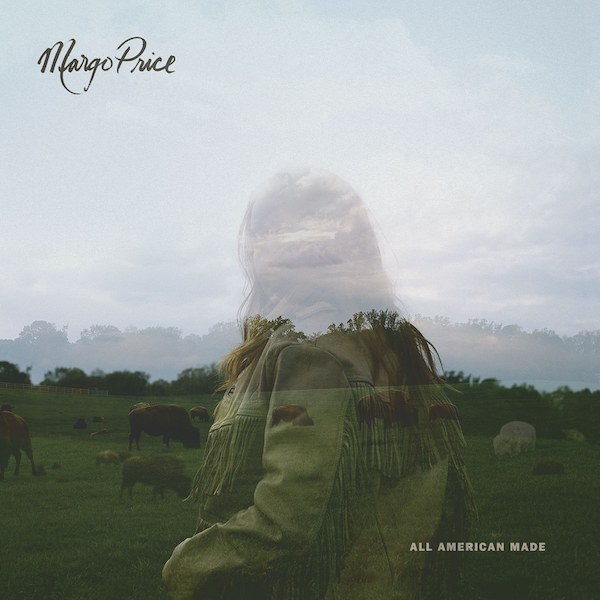
Gene’s World Music Corner:
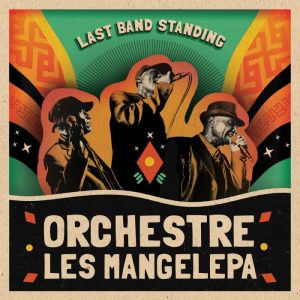
ORCHESTRE LES MANGELEPA, Last Band Standing (CD/LP)
It starts with a horn fanfare, then eases into lilting Congolese rumba, Kenyan-style, with three singers backed by a rock-solid rhythm section, intertwining guitars and horns. From the opening bars of Kanemo, it’s evident that Orchestre Les Mangelepa are as potent today as they were in the 1970s, when they sported platform shoes and became dancefloor heroes across east Africa. Originally from eastern Congo, they moved to Nairobi and succeeded by mixing the massively popular music of their homeland with Kenyan influences and lyrics in Swahili. But despite their success in Africa, they didn’t tour in Europe until last year. This new studio album, their first for the international market, includes old favourites such as Maindusa, but also the new, keyboard-backed Ma Lilly, featuring the powerful, pained vocals of founder member Kabila Kabanze. After all these years, they deserve a new following in the west.
KILLER REISSUES:
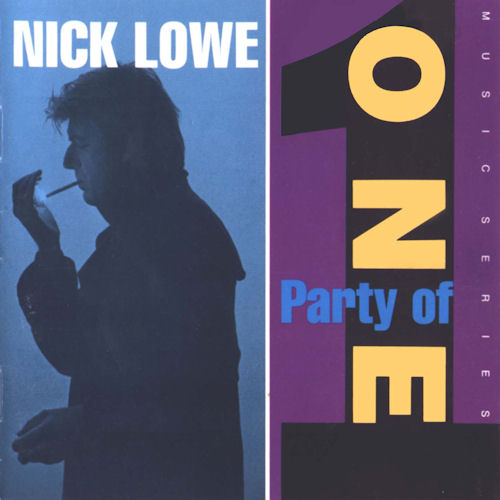
NICK LOWE
Party Of One (CD/LP)
Pinker & Prouder Than Previous (CD/LP)
Yep Roc’s reissue of Nick Lowe’s catalog continues! For Party of One, the personnel were drawn from Nick’s bandmates on 1987’s John Hiatt masterpiece, Bring the Family (Lowe on bass, Jim Keltner on drums and Ry Cooder on guitar) combined with the twin heads of the band The Moonlighters (Austin DeLone– ex of Eggs Over Easy and Bill Kirchen– Original Lost Planet Airman and twang kingpin). Nick brought in Dave Edmunds to produce and play even more guitar. They rip through a fantastic batch of original songs highlighted by “All Men Are Liars” and “What’s Shakin’ on the Hill” which are still staples of Nick’s live show. This strong effort led into the Little Village project and can be considered the final chapter in the first half of Nick’s career. The LP comes with a bonus EP of rare tracks and demos as well as a digital download card; the CD contains the EP’s songs as bonus tracks.
Perhaps Nick Lowe’s most varied release, Pinker and Prouder Than Previous was recorded in Austin, TX, the famed Rockfield Studios in Wales, and in London. Tapping everyone from his current associates Bobby Irwin, Paul Carrack and Martin Belmont to the Fabulous Thunderbirds and The Men They Couldn’t Hang to back him up, this mix of originals and covers actually predicts the stripped down style that revived his career a few years later.
THE SMITHS, The Queen Is Dead (3xCD + DVD/5XLP)
Widely considered to be both The Smiths’ finest work and one of the greatest albums ever made, The Queen Is Dead has cast a significant influence over subsequent generations since it was first released in the summer of 1986. This reissue represents the first time that The Smiths’ back catalog has been revisited in such a way. It follows two recent limited edition vinyl singles sourced from the archives: a demo mix of “The Boy With The Thorn In His Side” which was released for Record Store Day, and “The Queen Is Dead” which debuted at #1 on the official vinyl chart in the U.K. when it was released in June. The album features several of the band’s finest moments including the title track and “There Is A Light That Never Goes Out,” as well as the iconic singles “The Boy With The Thorn In His Side” and “Bigmouth Strikes Again.”
THE QUEEN IS DEAD is in-stock now in two versions, both of which feature the 2017 master of the original album:
- Deluxe 3-CD/1-DVD Boxed Set – Featuring the 2017 master of the album; additional recordings featuring demos, b-sides, and alternative versions; the Live In Boston album recorded at the Great Woods Center For The Performing Arts on August 5, 1986; and a DVD featuring the 2017 master of the album in 96kHz / 24-bit PCM stereo and The Queen Is Dead – A Film By Derek Jarman
- 5-LP box – Featuring the 2017 master of the album, additional recordings, and the Live In Boston recording.
GEORGE MICHAEL, Listen Without Prejudice/MTV Unplugged (CD)
COMING SOON:
BOOTSY COLLINS, World Wide Funk (10/27)
JOE HENRY, Thrum (10/27)
THEORY OF A DEADMAN, Wake Up Call (10/27)
And don’t forget these STILL-NEW platters that matter!
BECK, Colors (CD/LP/Deluxe LP)
On his new album, “Colors,” Beck delivers a perfect pop statement. This is by far his most conventionally mainstream album to date, working with the modern-pop template and elevating it in the process. Singles “Dreams,” ”Wow” and “Up All Night” have all been floating around a while now, so this shift should not come as a surprise. The record had been on the shelf for quite some time. Beck initially wanted to release this closer to his triumphant 2014 album “Morning Phase,” which got a lot of attention at the Grammys when it won album of the year. In some ways this album’s overtly commercial angle plays like a direct response to Kanye West and others who at the time seemed confused when Beck won the award over Beyoncé. The die-hard indie fans will probably take issue with this record’s overall shininess, as Beck and producer Greg Kurstin often pack it with the kind of energy reserved for late-’80s INXS singles. However, there are also other elements present, from the Beatle-esque piano-driven groove of “Dear Life,” to the grungy, sudden freak-out that serves as the centerpiece to “I’m So Free.”“Colors” is indeed a bold, bright, daring move. Releasing it in October may have been a mistake. It’s a very summery record. One thing is clear: When you listen to songs like “No Distraction,” “Square One” and “Seventh Heaven,” it’s definitely evident, that while Beck may have taken a strong left turn, here, he hasn’t lost his knack for shape-shifting song-craft. After the soft, introspection of “Morning Phase,” Beck is now ready to party. Here’s hoping this record gets the airplay and the audience it deserves.
ROBERT PLANT, Carry Fire (CD/LP)
Carry Fire reunites Plant with the Sensational Space Shifters, his backing band that helped make the 2014 album Lullaby and… the Ceaseless Roar such a lush, psychedelic delight. The tribal rhythms and organic instrumentation (combined with tastefully executed synths and samples) are back, to the extent that Carry Fire could almost be seen as a welcome sequel to that fine album. The sound has an almost folky, campfire feel, but true to Plant’s musical roots, most of the songs here are embedded in the blues. Opening track “The May Queen” rolls along a heavy percussive groove with acoustic guitars and fiddles creating an intoxicating noise. “Lay down in sweet surrender,” Plant purrs, “Your love so warm and tender.” The organic, unassuming style of musicianship also lends itself to tracks that are slightly more traditionally “rock”. On “New World…”, slashing electric guitar chords rain down while a chugging mid-tempo beat moves this along in unhurried, hip-swaying fashion. “Bones of Saints” seems to be a nod to earlier Plant solo material—the driving beat and guitar interplay suggest a grizzled, lazier version of “Tall Cool One”. But much of this is somewhat uncharted territory for Plant. I have yet to hear anything in his solo catalog like “A Way with Words”, a startling, abstract, almost jazzy set piece. Piano, strings, and gentle percussion are just a few of the instruments that provide sympathetic backing to what’s perhaps Plant’s most delicate, vulnerable vocal performance committed to tape. Likewise, “Keep It Hid” combines insistent, almost trance-like percussion with sci-fi keyboard riffs, sounding like a welcome, newfound Radiohead outtake. Plant’s love of Eastern scales and instrumentation are evident in Carry Fire’s title track, and his penchant for woodsy, Tolkien-ish folk continues with the epic “Season’s Song”, another track that, like “A Way with Words”, shows Plant edging more into a place of maturity without losing any edge. Plant has never been one to drown his solo albums in gratuitous guest appearances, but he makes an exception with one of Carry Fire’s strongest tracks, “Bluebirds Over the Mountain”, a song written in 1958 by Ersel Hickey and later covered by artists such as the Beach Boys and Ritchie Valens. Plant turns the song into a potent duet with Chrissie Hynde. The song sounds terrific, with gurgling synths and lumbering guitars creating an industrial take on an obscure R&B chestnut. The material, arrangements, and performances on Carry Fire would be impressive for any young, brash newcomer. The fact that it comes from the mind of Robert Plant should be no surprise to anyone who’s been following his solo career. It’s still a relief to hear something so fresh from a legendary artist with plenty of creative gas in the tank.
COURTNEY BARNETT & KURT VILE, Lotta Sea Lice (CD/LP)Although the pairing of these two wonderfully languid singer-songwriters could have ended up too hazy, their mutually dreamy, drawling styles complement each other perfectly. The way their guitars jangle and chime together reflects a longstanding friendship. They sing on each other’s old songs: Barnett’s Outta the Woodwork or a joyously upbeat version of Vile’s Blue Cheese. They turn in a harmony-soaked take on Belly’s Untogether and Barnett leads a Crazy Horse-style blast through her wife Jen Cloher’s Fear Is Like a Forest. Five new original songs showcase a similar kooky charm as they rattle through random subjects. Vile sings about decibel-induced hearing impairment in six-minute opening duet Over Everything, while the pair drawlingly celebrate their long-distance bond in Continental Breakfast (“I cherish my intercontinental friendships”). Laughter in the studio punctuates songs that sound as much of a delight to record as they do to listen to: Lotta Sea Lice is at least the sum of its two talented parts.
LYDIA LOVELESS, Boy Crazy & Single(s), (CD/LP)
It’s hard to find an article of Lydia Loveless that doesn’t mention some type of “fire”—spitfire, firebrand, fiery. There’s no question why, of course; her music is a blaze of powerful vocals and raging rock and roll guitar, red-hot and ready with a snarl or a good, honest shout. No-holds-barred emotion burns through every song she sings, marking every ex she reams and every lost friendship she mourns. Loveless gets bitter, she gets rowdy, and she makes no apologies as a general rule. Don’t make the mistake of pigeonholing her as all flames, though. On Boy Crazy and Single(s), a reissue of 2013 EP Boy Crazy and six previously released singles, Loveless reminds us that she’s earth, air, and water, too, not some intangible elemental force, but a real human being. She does this not just through her songwriting, but with a handful of covers to supplement it. Of these covers, Kesha’s “Blind” is a standout, taking the sleek, club-ready pop song to a much heavier place, filling it out with lonesomeness and melancholy that begs the question of why someone wrote it with any other style in mind. “I Would Die 4 U” gives Loveless and her band a chance to try something very different from their usual style, paying tribute to Prince with synths and a solid bassline adding some bolder hues to the mix. The Lydia Loveless touch is still unquestionable, though; the harsh edge of her voice makes the promise in the song’s title sound like one she fully intends to keep. Finishing off the album is a stark rendition of Elvis Costello’s “Alison” with Loveless belting and strumming, the only figure beneath a sonic spotlight.
ST. VINCENT, Masseduction (CD/LP)
Mechanical beats and abrasive synths underpinned by producer Jack Antonoff’s feedback-pocked soundbed-of-nails: Annie Clark’s sixth album as St Vincent is not immediately inviting. But it is fascinating, sometimes grimly so, with Clark relating scenes from a relationship with a drugged-up Young Lover. But the frank confessions – of transgressive desire, pathological anxiety and romantic rejection – that pepper Masseduction transcend gossipy intrigue. (Inevitably, people will assume some of the material is inspired by her breakup with ex-girlfriend Cara Delevingne.) Sonically, the record gradually unfurls into something similarly captivating though, as Clark ditches the guitar rock for pop that is rich, nuanced and constantly surprising. Single songs journey across genres – Pills, for example, begins resembling a bass-heavy remix of a nursery rhyme and ends up a big ballad with a Kamasi Washington sax section – while bizarrely amusing ingredients are continually added to the pot, from parodically funky synth lines to shrill vocal gymnastics that would have Mariah Carey cowering on her chaise lounge.
NINE INCH NAILS, Add Violence (CD/LP)
Trent Reznor has always aspired to the artistic malleability of David Bowie, tweaking his sound and vision with each release while twisting his kaleidoscope of grays into different shades of anguish. Like the late Thin White Duke, he’s made missteps (his remix EPs never “fixed” anything, and his glitchy How to Destroy Angels space-pop detour could be his Tin Machine), but also like Bowie, he’s always regained his footing, funneling his anxieties into new teeth-gnashing horrorscapes. His soundtrack work in recent years with his Nine Inch Nails partner Atticus Ross has given him an outlet to experiment outside of his nom de synth-rock, forcing new vitality into his NIN outings of late for even harsher, more potent music. His latest, the five-song EP Add Violence, contains all the aggression, abjection and self-loathing that solidified his position as alt-rock’s Original Angster but with the measured restraint of a man his age. Like Reznor’s early Nine Inch Nails work, it’s a mostly insular affair – only he and Ross are credited here, with two women singing backup on opener “Less Than” – and it’s the inherent loneliness that makes Add Violence compelling, especially when contrasted with last year’s Not the Actual Events EP, which sounded a little scattered despite guest shots from Daves Grohl and Navarro and Reznor’s wife and How to Destroy Angels partner Mariqueen Maandig. The simplicity of the duo’s approach drives Add Violence from the start, as “Less Than” opens with a plinky, Depeche Mode–styled keyboard riff before Reznor’s voice wrests it into a catchy, chin-down single. “Welcome oblivion,” he sings at the end. “Did it fix what was wrong inside?” But since that feeling of nothingness, which Reznor has paid homage to on practically every release of his career, has never fixed anything, it becomes the third member of Nine Inch Nails on the rest of the EP. That isolated sensation overwhelms “Not Anymore,” one of the harder hitting and most self-deprecating tracks on Add Violence. “I won’t forget – I know who I am,” he sings. “No matter what, I know who I am/And what I’m doing this for … ” And then he screams, “Well, not anymore.” It’s vintage Reznor hostility, and it’s all the more cutting when sandwiched between the shadowy, ominous “This Isn’t the Place,” which could be a soul song if presented differently, and overdriven closing track “The Background World,” which opens with Reznor dejectedly scorning someone, “You left me here,” before eventually building to eight minutes of an overdriven synth loop, adding more and more distortion with each repeat, recalling Nine Inch Nails’ Broken EP
THE BARR BROTHERS, Queens Of The Breakers (CD/LP)
The third album can be crucial for any band. Do they complacently settle into a signature sound they’ve forged, or take the opportunity to up their game in adventurous fashion? It should be no surprise that Montreal- based trio the Barr Brothers took the latter path, given the genre-defying material they created on their self-titled debut and 2014’s breakthrough effort, Sleeping Operator. Queens of the Breakers is equally eclectic, but the strength of the writing, playing and production is such that it never sounds unfocused or incoherent. The album is jump-started in gentle fashion by “Defibrillation,” with Brad Barr’s haunting vocals nicely complemented by the harmonies of Lucius. The mellow feel continues until the pace picks up with “Maybe Someday” and its wailing harmonica solo. “Song That I Heard” starts off as a sparse folk-based tune until plaintive horns move it to a different place, while stone-cold killer cut “Kompromat” is compellingly atmospheric, and more than a tad Radiohead-like, sporting apocalyptic lyrics like “I was dragging the head of a buffalo through the city streets.” “You’d Have to Lose Your Mind” features some of the droning, trance-like feel of earlier BB material, and the title track, an homage to the brother’s youthful days Stateside, is a direct folk-rock narrative. “It Came to Me” is a surging guitar-fuelled rocker that again features an underlying drone that grips hard. The Barr Brothers use multi-layered vocals and harmonies extensively on Queens of the Breakers, and there are just enough subtle instrumental curveballs thrown to keep your interest. This is a rich and compelling record that deserves and rewards your close attention.
FRONT BOTTOMS, Going Grey (CD/LP)
The Front Bottoms’ move to Fueled by Ramen Records in 2015 for the release of Back on Top marked a huge leap forward for the band; the hooks were bigger, the production brighter, the songs as catchy and weirdly endearing as ever. Going Grey finds the New Jersey duo of Brian Sella and Mathew Uychich refining this sound even more, and features their cleanest, tightest production to date, with big, sing-along choruses and sparkling synths more prominent in the mix. Things start out strongly with “You Used To Say (Holy Fuck),” a mid-tempo track with an incredibly catchy chorus destined to be shouted back for many concerts to come. Complementing those strong melodic instincts are Sella’s lyrics and vocal delivery, which are thankfully as delightfully idiosyncratic as ever here. From backyard-spanning trampoline adventures (“Trampoline”) to darker, more introspective moments (“Grand Finale”), the imagery and ideas on Going Grey are always vividly realized. Uychich’s drumming emphasizes it all, accenting Sella’s off-kilter phrasing in ways that really drive home the efficacy of the drummer/guitarist dynamic. The two are always tightly locked, giving the songs a forward momentum that makes it easy to suddenly find yourself listening to the whole album even if you hadn’t planned to — it’s an enviable trick. Their plucky DIY aesthetic may be all but gone at this point, but the Front Bottoms have transitioned to the majors gracefully. Certain synth melodies might be a tad too sugary for some, but they bolster the top-notch songwriting on Going Grey, and Sella’s unique and unpredictable vocal phrasing keeps the proceedings distinctly Front Bottoms from start to finish.
KING GIZZARD & THE LIZARD WIZARD, Sketches of Brunswick East (CD/LP)
After customizing their instrumental setup for microtonal scales in the hypnotic Flying Microtonal Banana, then pulverizing listeners with aggressive psychedelic muddiness in their destructive three-chapter path through Murder of the Universe earlier this year, King Gizzard introduces another dimension to their creative sphere with the band’s third album of the year (yes, ridiculous, I know). Although the band’s prolific efforts have consistently rewarded listeners with bold jumps in style, Sketches of Brunswick East, a jazz-leaning project should not cause anyone to mistake them for experimental virtuosos. Needless to say, King Gizzard’s latest work will delight those who are willing to take a chance on their brave ventures through avant-garde jazz, which is in collaboration with Alex Brettin of Mild High Club. Inspired by the titular Melbourne suburb in which they have devised their vast discography, Sketches of Brunswick East is an album perfectly pitched between Mild High Club’s hues of laid back lo-fi and King Gizzard’s zany spells of psychedelic sporadicism. While this record possesses many Gizzard-isms and trippy freak-outs from their back catalog, the overarching jazz is a refreshing sound for the Aussies. Sketches unwinds with a grooviness unlike anything the band has displayed thus far, as it takes a naturally languished approach, strolling by like a late summer afternoon while basking in the mellow sunshine with an unfettered sense of relaxation. This carefree atmosphere and meditational charisma are punctuated by tumbling drums, sticky bass work, whimsical woodwinds and overall melodies that are liberated as can be.
WILLIAM PATRICK CORGAN, Ogilala (CD/LP)
Ogilala can be achingly vulnerable, though it never reveals its complex prose, a trait that has defined Corgan’s vast body of work. This can pose as a hurdle for those who’ve felt frustrated by his sometimes underdeveloped musings, given that Corgan often expresses himself through intuition and not conscious thought. But Ogilala is anything but musically overwrought, and the melodies do keep a haunting quality that elevates his distinct quivering voice. It could never quite redeem Corgan’s complicated public awareness, as he’s equally adored and loathed with great passion, but you still get the impression that it’s the first time in years where he’s truly pursuing his artistic muse without placing any importance on commercial supremacy. It’s as if he’s willing to give up his title belt for the first time, retiring his mythic rock status once and for all. And though that may actually not be true, the plainspoken narrative of Ogilala says otherwise.











